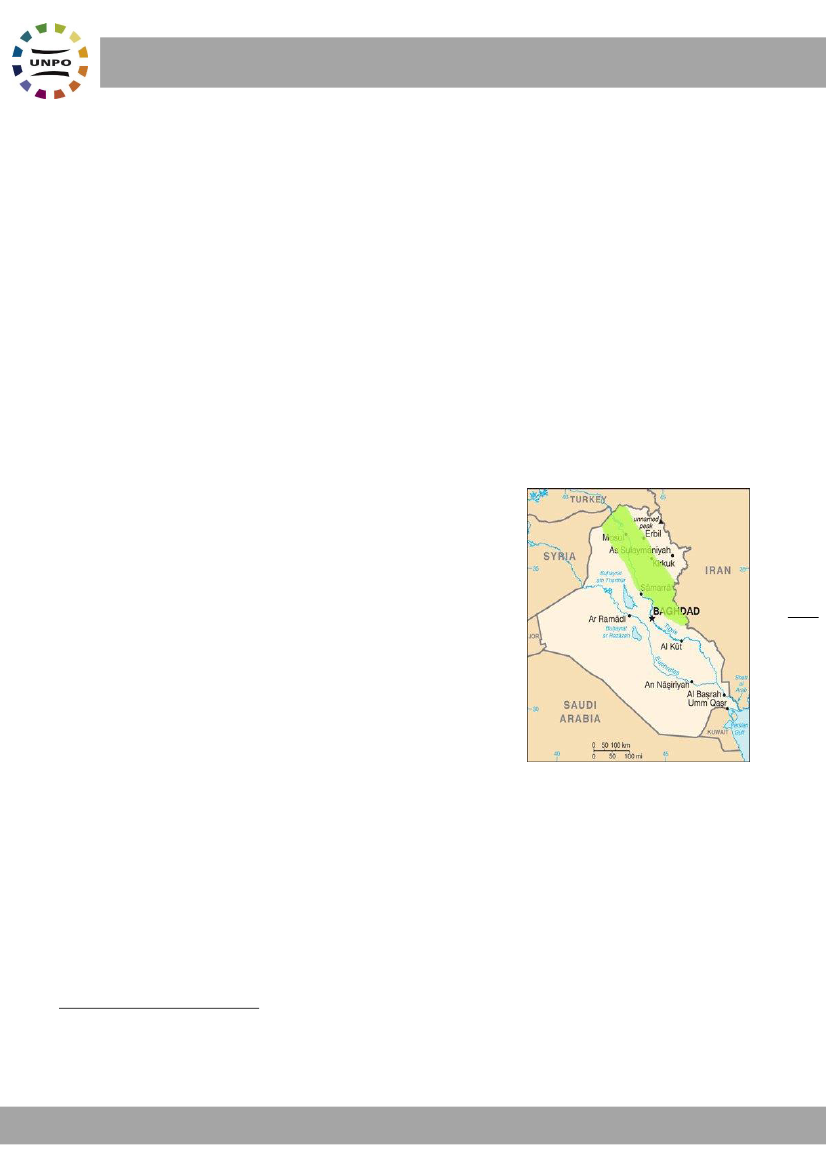
Briefing Note
The Turkmen Reality in Iraq
Introduction
November 2013
_____________________________________________________________________________________
The Iraqi Turkmen are a minority of just under 3 million, predominantly present in the Iraqi provinces of Mosul,
Erbil, Kirkuk, Salahaddin and Diyal, Baghdad and Wasit. They represent the third largest ethnic group in Iraq (13%
of the population).
Kirkuk is considered by the Turkmen as their capital city. This area, within the ‘Turkmen’ region of Iraq, produces
nearly 70% of the Iraqi petroleum and 2.2% of the world’s.
They are primarily politically represented by The Iraqi Turkmen Front (ITF).This organization includes all Turkmen
parties and movements such as the INTP (Iraqi National Turkmen Party)
1
; the Turkmeneli Party (TP) ; the Adalet
party (AP); the Islamic Movement of Iraqi Turkmens (IMIT); and the Independents Movement. It also includes the
Turkmen Nationalist Movement (TNM), the Turkmen Wafa Movement, and the Islamic Union of Iraqi Turkmens
(IUIT).
Historical Background
___________________________________________________________________________________
Originating from Central Asia, the Turkmen are descendants of the
Oghuz tribes. The decline of their influence first began after the collapse
of the Ottoman Empire.
Throughout the 1920’s both Turkmen and Kurd minorities resisted British
authority and the Hejazi Hashemite monarchy, and as a result the
cultural rights of Turkmen communities were gradually eroded. In the
1930s a rapid demographic change produced ethnic tension, and
Turkmen communities began to feel the effects of marginalisation.
Violence continued to escalate until 1959, when communist and
separatist militias massacred Turkmen leaders along with hundreds of
Turkmens in the city of Kerkuk. Tensions were later exacerbated even
further with the establishment of Ba’ath Party rule in 1968. The 1970s
where in fact characterised by other breaches of Turkmen human rights
such as the ‘Arabisation of Kirkuk’ in 1971, and by their discrimination
through employment opportunities, unfair dismissals, deliberate
measures to worsen their living conditions, forced displacement and
deportation, and interference with their right of ownership.
2
After seizing power in 1979, Saddam Hussein’s regime instigated a campaign of intensive “Arabisation”,
systematically expelling the Turkmen, instead promoting the resettlement of the Arab population. This period of
persecution effectively destroyed Turkmen civil society, forcing many of its political institutions underground or into
exile abroad.
Unfortunately, despite the regime change in Iraq in 2003, the Turkmen tragedy continues. Many Iraqi Turkmen
communities believe that their historical presence and influence has remained marginalised during the process of
reconstructing the Iraqi state, and that more has to be done to correct the past injustices they have suffered.
1
1
2
Led and founded by Dr. Muzaffer Arslan, who also represents the Iraqi Turkmen in UNPO.
And also suppression and intensive assimilation policies, forced cultural erosion that ranged from political persecution and
exile, to terror, massacres and ethnic cleansing. (Large numbers of Turkmen intellectuals were accused of political activities and
disappeared after their arrest during the Baathist regime; nothing has been heard of them since.)
Unrepresented Nations and Peoples Organization • www. unpo.org • +32 25 13 14 59 • [email protected]